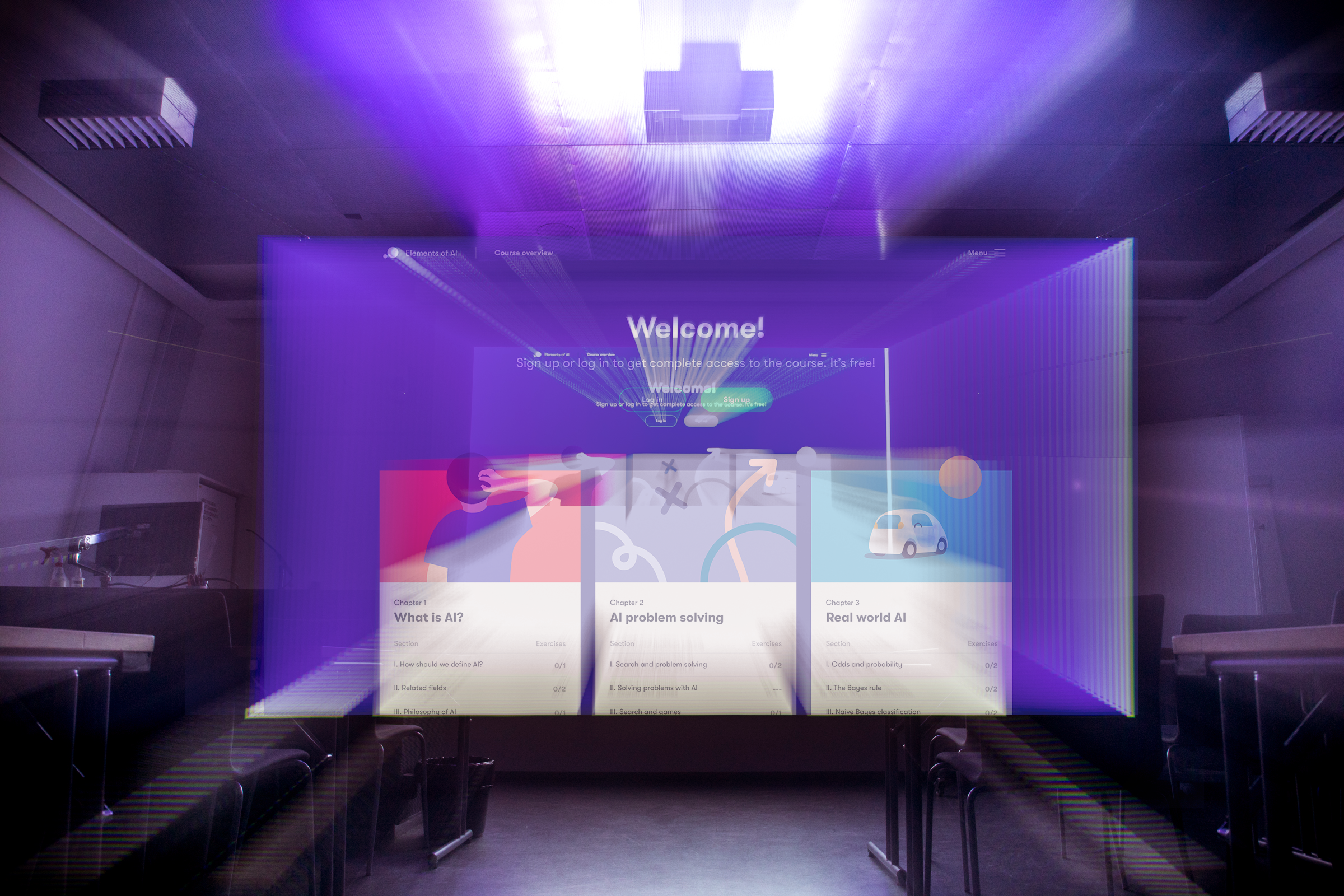Artificial intelligence is everywhere. Most of us interact with AI on a daily basis, whether it's voice assistants on our smartphones, customer service chatbots on a website, Amazon recommendations, or search results on Google. In business, AI offers a virtually limitless number of opportunities – and disrupts more or less every process along the way.
To succeed on the new playing field, organizations and individuals need new technological skills and a clear grasp of what artificial intelligence is and how to leverage its power. The Diploma in Artificial Intelligence program meets this need by giving you an in-depth understanding of the topic and helps you apply contemporary AI technologies.
"The program will give you the tools to increase your organization's AI maturity by leaps and bounds," says Teemu Roos, one of the program's instructors, Associate Professor at the Department of Computer Science, University of Helsinki, and Leader of AI Education at Finnish Center for Artificial Intelligence FCAI.
The Diploma in AI is a joint effort between Aalto PRO, University of Helsinki Centre for Continuing Education HY+, and FCAI.
"Our collaboration with FCAI has been excellent. We've joined forces to build AI expertise in the business community. Bringing together AI expertise from both the academia and industry, FCAI is a natural partner for us," says Jonni Junkkari, Solutions Director, Aalto PRO.
"We take a rather detailed and technical approach to some topics, but our main objective is to give the participants an overview of the AI development life cycle so that they know what's involved and what skills are needed. They may never again do any coding themselves, but it's easier to communicate with the actual developers when you understand the data acquisition challenges and technological limitations and have an idea of how to turn the technology into business," says Roos.
Tapio Kuusisto, Diploma in AI Alumni and Director, Architecture, Data & Analytics at Outotec, a Finnish minerals and metals processing technology and service company, agrees.
"I enrolled in the program to stay relevant professionally. AI is everywhere, and when your job involves enterprise or ICT architecture, you simply have to understand it better than the average Joe, if only to be able to understand what's what when people try to sell you their 'revolutionary' AI solutions and services," Kuusisto says.
Become an AI pioneer
The program consists of six two-day study modules with intensive in-class sessions and learning by doing. Topics include fundamentals of data and AI and cutting-edge AI technologies and applications ranging from analytics to modern deep learning models. There are also case presentations by leading organizations.
Roos promises that after completing the program, participants will feel empowered and on top of all things AI.
"The program gives people a confidence boost, making them ready to learn even more and become AI pioneers in their organizations," Roos says.
The mandatory modules are complemented by elective modules, giving the participants the chance to select between a technical study track requiring programming skills or a business study track focusing on business applications. Individual exercises and project work enable the participants to apply their newly-acquired skills to their daily work right away and figure out what is really relevant for their organization.
In his project work, Kuusisto focused on text analytics, which turned out to be a good choice.
"As an example, Outotec is often approached by startups offering text analysis applications. Now I know what to ask them, for example, about language capabilities. For us, Finnish and English are not enough. We need, for example, German, Portuguese, Swedish, and Spanish, too. The challenges related to text analysis, such as what is easy, what is difficult and so forth became quite clear," Kuusisto mentions.
As AI is a hot topic and has been for a while, there are numerous books and online courses available on the subject. Nevertheless, both Roos and Kuusisto emphasize that participating in the Diploma in AI program is a whole different ballgame. Not only do you get personal sparring, but the six-month time span gives you time to reflect on what you're learning.
"Participating in a program like this gives you the impetus and forces you to set aside time for learning. It's definitely a plus," says Kuusisto.
Going the extra mile
The program is targeted at programmers and developers, product managers, business development managers and directors, deployment managers, software architects, and IT managers and directors.
"It's not a magic bullet, but it gives you a profound understanding of what's possible and what's not," Kuusisto says.
He also applauds the teachers for their high standard and varied approaches.
"We are very proud of this program, and it's a big investment for us. It's not often that you see such high-caliber academic researchers teaching a program like this," says Roos.
For Kuusisto, the program exceeded all expectations. It took some doing on his part, too.
"I really went the extra mile to reach the next level. I have never coded for a living but I believe that you should have an in-depth understanding of the things you're in charge for. That's why I decided to learn Python to see how AI applications are done. Soon I noticed that I can build machine learning solutions by myself."






















